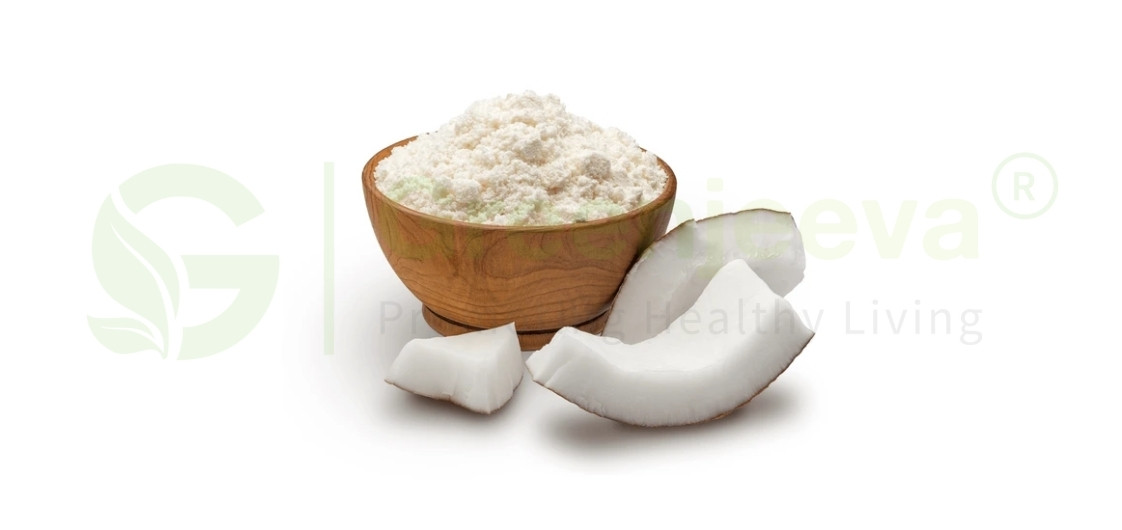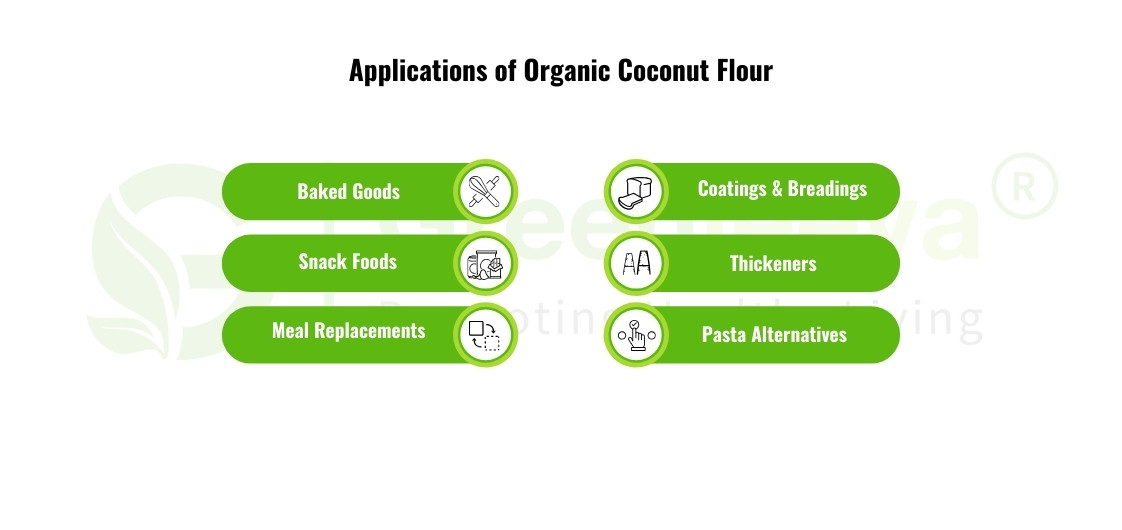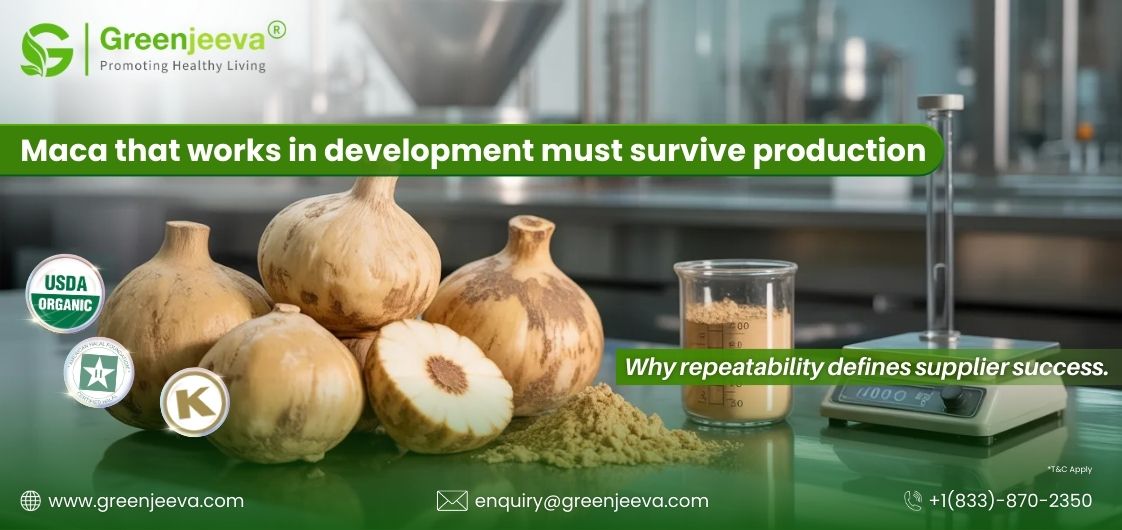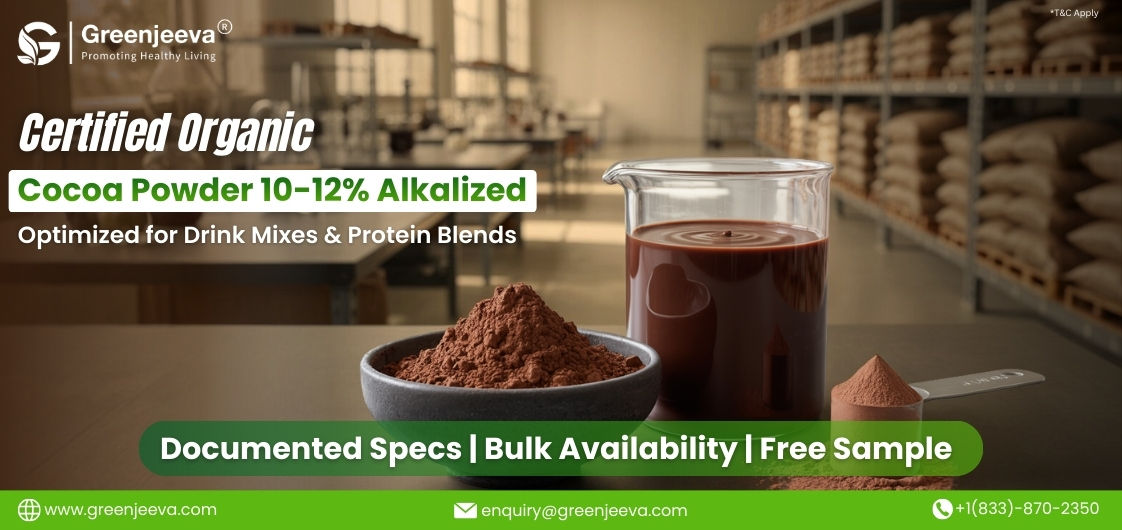Organic Coconut Flour Powder Applications in Keto and Low-Carb Products

Organic coconut flour powder is emerging as a key player in the keto and low-carb product landscape, offering a compelling alternative to traditional grain-based flour. Its low carbohydrate content, high fiber, and nutrient density make it an ideal ingredient for manufacturers looking to cater to the growing demand for keto-friendly and low-carb options.
Derived from the dried, ground flesh of coconuts, this fine, powdery flour is not just another fad ingredient. Its unique nutritional profile, with high fiber, protein, and healthy fats, is opening up new possibilities in product development, particularly in the burgeoning keto and low-carb markets.
Market Demand for Organic Coconut Flour in Bulk
The global coconut flour market is experiencing significant growth, driven by increasing consumer awareness of its health benefits and the rising popularity of gluten-free, keto, and low-carb diets. According to a report by Grand View Research, the global coconut flour market size is expected to reach USD 720.9 million by 2025, growing at a CAGR of 6.8% from 2019 to 2025.
Factors contributing to this growth include:
Rising Health Consciousness: Consumers are increasingly seeking out healthier alternatives to traditional flours.
Growing Keto and Low-Carb Trends: The surge in popularity of these diets is driving demand for low-carb flour alternatives.
Expanding Gluten-Free Market: As awareness of gluten sensitivities grows, so does the demand for gluten-free flour options.
Increasing Product Innovation: Food manufacturers are incorporating coconut flour into a wide range of products, from baked goods to snacks and beverages.
Sustainability Focus: Coconut production is generally considered more sustainable than some traditional grain crops, appealing to environmentally conscious consumers.
Key Benefits of Organic Coconut Flour Powder in Keto and Low-Carb Products
Low Net Carbs: With most of its carbohydrate content coming from fiber, coconut flour has a low impact on blood sugar levels.
High Fiber Content: Provides satiety and supports digestive health, which is crucial for keto and low-carb dieters.
Protein Rich: Offers a plant-based protein source, important for maintaining muscle mass on low-carb diets.
Healthy Fats: Contains medium-chain triglycerides (MCTs), which are favored in ketogenic diets for their potential to support ketosis.
Gluten-Free: Suitable for those with gluten sensitivities or celiac disease, expanding the market reach of products.
Versatility: Can be used in a wide range of applications, from baked goods to coatings and thickeners.

Coconut Flour Nutrition
Understanding the nutritional profile of coconut flour is vital to appreciating its value in keto and low-carb products:
Per 1/4 cup (30g) serving:
Calories: 120
Total Fat: 4g
Total Carbohydrates: 16g
Dietary Fiber: 10g
Net Carbs: 6g
Protein: 6g
Iron: 20% DV
Potassium: 13% DV
This nutrient-dense profile makes coconut flour an excellent choice for manufacturers looking to create products that align with keto and low-carb dietary guidelines while providing substantial nutritional value.
What's the Difference Between Coconut Flour and Coconut Powder?
While often confused, coconut flour and coconut powder are distinct products with different applications:
Coconut Flour:
Made from dried, defatted coconut meat
Fine, powdery texture
High in fiber and protein, low in fat
Primarily used as a flour substitute in baking and cooking
Coconut Powder:
Made from dried, ground whole coconut meat
Coarser texture than coconut flour
Higher in fat content
Often used to add coconut flavor and richness to dishes and beverages
Is Coconut Flour a Healthy Flour?
Organic coconut flour is not just a trendy ingredient, it's a healthy choice. It's generally considered a healthy alternative to traditional grain-based flours for several reasons, including its low glycemic index, nutrient density, and support for digestive health.
Low Glycemic Index: Its high fiber content may help minimize blood sugar spikes.
Nutrient-Dense: Rich in minerals like iron, potassium, and manganese.
Supports Digestive Health: The high fiber content can aid in digestion and may promote gut health.
Healthy: Contains lauric acid, which may have beneficial effects on health.
Weight Management: The fiber and protein content can contribute to feelings of fullness and satiety.
Allergen-Friendly: Free from gluten, nuts, and grains, making it suitable for various dietary restrictions.
While coconut flour offers numerous health benefits, it's important to note that it should be used as part of a balanced diet. Its high fiber content means it absorbs more liquid than traditional flours, which can affect recipe formulations.
Incorporating Organic Coconut Flour into Keto and Low-Carb Products
For food manufacturers looking to capitalize on the growing demand for organic coconut flour in keto and low-carb products, consider the following strategies:
Snack Foods: Create low-carb crackers, chips, or granola, incorporating coconut flour for added nutrition and texture.
Baked Goods: Develop keto-friendly breads, muffins, and cookies using coconut flour as a primary ingredient.
Meal Replacements: Formulate keto-friendly meal replacement shakes or bars using coconut flour as a base.

Thickeners: Incorporate coconut flour as a natural thickener in sauces, soups, and smoothies.
Coatings and Breadings: Use coconut flour as a low-carb alternative for coating meats or creating crispy toppings.
Pasta Alternatives: Develop low-carb pasta or noodle products using coconut flour blends.
By partnering with a reputable organic coconut flour supplier, food manufacturers can tap into the full potential of this versatile ingredient and deliver innovative, health-focused products that meet the evolving demands of keto and low-carb consumers.
In conclusion, organic coconut flour powder represents a significant opportunity for food manufacturers in the keto and low-carb product space. With its impressive nutritional profile, versatile applications, and growing consumer demand, this alternative flour is poised to become a staple ingredient in health-conscious kitchens and commercial food production alike. By understanding its benefits, market trends, and potential applications, forward-thinking companies can harness the power of organic coconut flour to create products that not only meet the needs of keto and low-carb consumers but also stand out in an increasingly competitive marketplace.
Similar organic products: Organic Semolina Flour, Organic Sesame Seed Powder, Organic Slippery Elm Bark Powder, Organic Spearmint Leaf Powder, Organic Spinach Extract Powder 10:1
**The Food and Drug Administration has not evaluated these statements. This product is not intended to diagnose, treat, cure, or prevent any disease.**






